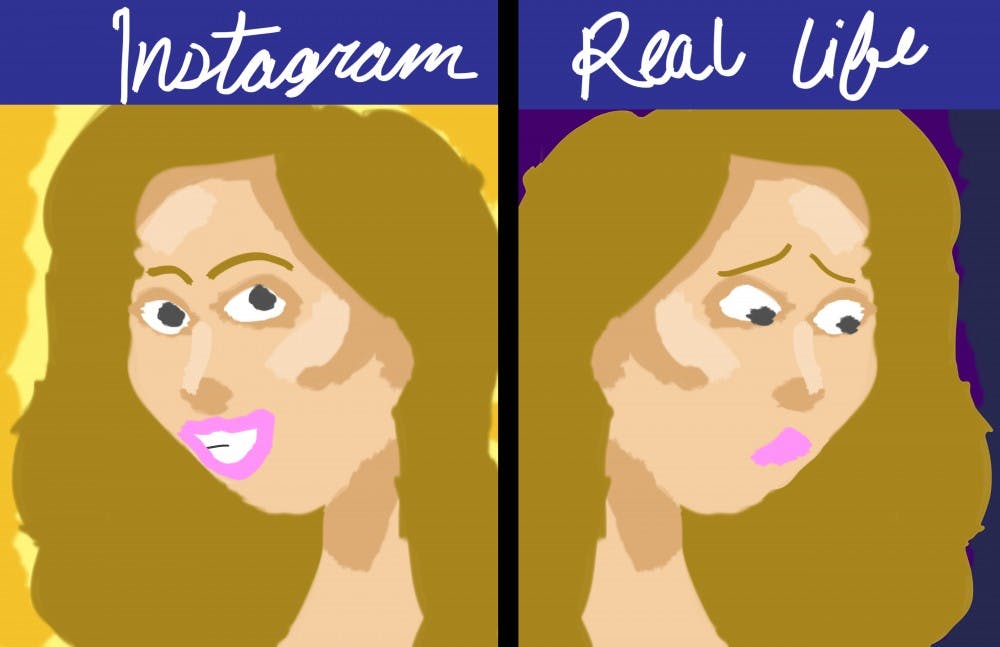A tweeted photo of a young girl in a bikini on the beach seems perfectly pleasant. Tinder pictures of happy faces make us feel good. But behind the screen lies insecurity, anxiety and loneliness.
When Instagram star Essena O’Neill told the world, “Social media is an illusion,” she removed original comments from her social networks and replaced it with her true feelings, according to CNN.
Though her online profiles had been gaining more followers, she started to feel more lonely.
Like many other social media personalities, her online persona wasn’t who she really was. Her content had been edited and manufactured to the interests of others.
Though O’Neill is among the few who try to become famous via social media, the values of online celebrity culture permeate through our own obsession with connecting.
Earning retweets might satisfy our own of dreams of being noticed among others. As such, the corporate digital world feeds off of these needs.
O’Neill has promoted a healthier, truer lifestyle of social media. On her website, letsbegamechangers.com, she has said celebrity culture is “useless and just distracting. Let’s live in the world we want for each other. So... let’s change stuff up.”
She wants us to be content with our present lives and make a positive effect on the world. But why is it so hard for us to commit to O’Neill’s mission?
Social media promises us the ability to develop an identity for ourselves and use that to connect with others.
With technology and imagination leading the way, everyone wants to become connected and automated. We can now enjoy the attention of others and talk to loved ones in no time.
Many of us think social media will help us express ourselves more honestly by posting everything out in the open.
But by fishing for likes on a Facebook status, we often find ourselves slaves to the illusory culture of social media.
In another sense, social media doesn’t easily allow for meaningful communication.
Though we might tell our friends what we’re eating and follow fads in fitness, health and media, we show a facade. The narrative we try to share has been replaced with information without context. And we’re left lonely.
Though it’s easy to blame millennials for these issues, we’ve had to adapt to the technology throughout history.
For example, Transcendentalist writers found meaning during the nineteenth-century industrialization through careful attention to our world and nature.
As Ralph Waldo Emerson put it, “the experience of each new age requires a new confession,” as he struggled to understand whether or not he could truly express himself during his time. The same way those before us transcended the technological barriers, we can fight against the status quo to reveal who we really are.
Identifying the problem is only the beginning. We need to be more open and honest in expressing ourselves.
If we really are stressed out, we could take a moment to turn off our phones, computers and anything else for a moment or two.
Though most of us can’t afford to give up on being connected altogether, we can change the system, or even transcend from its troubles. Like O’Neill put it, “Let’s be game changers.”




